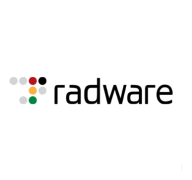

Corero and Radware are competing products in cybersecurity solutions, focusing on DDoS protection. Corero is noted for its cost-effectiveness, while Radware stands out for its extensive features, making it a valuable investment.
Features: Corero provides immediate automated attack mitigation, bandwidth-based pricing, and straightforward deployment. Radware offers advanced behavioral detection, extensive threat analytics, and deeper insights for comprehensive protection.
Room for Improvement: Corero could enhance its application filtering, improve application DDoS prevention, and expand its threat analysis capabilities. Radware may benefit from simplifying its deployment complexities, improving response times for smaller attacks, and refining its user interface for better accessibility.
Ease of Deployment and Customer Service: Corero is praised for simple deployment and strong customer service, ensuring quick integration and responsive support. Radware's deployment requires more expertise but is supported by detailed resources and comprehensive documentation.
Pricing and ROI: Corero is considered budget-friendly with a lower initial setup cost and efficient operations offering favorable ROI. Radware has a higher setup cost but justifies it with advanced features providing compelling ROI for those prioritizing comprehensive coverage.
| Product | Market Share (%) |
|---|---|
| Radware DDoS | 8.2% |
| Corero | 2.5% |
| Other | 89.3% |
| Company Size | Count |
|---|---|
| Small Business | 4 |
| Midsize Enterprise | 2 |
| Large Enterprise | 1 |
| Company Size | Count |
|---|---|
| Small Business | 19 |
| Midsize Enterprise | 10 |
| Large Enterprise | 21 |
Corero Network Security is dedicated to improving the security and availability of the Internet through the deployment of innovative DDoS & Network Security Solutions. The Corero SmartWall® Threat Defense System (TDS) family of products can be deployed in various topologies, (full edge protection or scrubbing). the SmartWall Threat Defense System (TDS) family of solutions utilizes modern DDoS mitigation architecture to automatically, and surgically remove DDoS attack traffic, while allowing good user traffic to flow uninterrupted.
The goal of the Corero automatic DDoS mitigation solution is to protect the customer’s network infrastructure, online services and confidential data from harmful DDoS attacks. The Corero solutions are the highest performing in the industry, while providing the most robust security coverage at unprecedented scale with the lowest total cost of ownership to the customer. These solutions are designed to provide real-time attack mitigation with continuous threat visibility, which allows our customers to also monetize DDoS Protection as-a-Service (DDPaaS) offerings.
Radware DDoS provides robust multi-layer protection against distributed denial of service attacks, featuring real-time monitoring and anomaly detection. Its scalable cloud-based and on-site deployment options ensure effective safeguarding of critical infrastructure.
Offering comprehensive defense, Radware DDoS includes features like data scrubbing, signature updates, and SSL-based mitigation. Integrated platforms and a user-friendly interface streamline its deployment. With advanced reporting, analytics, and behavioral analysis powered by machine learning, users experience fewer false positives. Despite these strengths, users highlight the need for improved scalability, seamless deployment, and enhanced machine learning capabilities. Better documentation, pricing, and customer service remain areas of improvement.
What features does Radware DDoS offer?In industries like banking, telecom, and government, organizations employ Radware DDoS to protect networks from DDoS attacks. It ensures server, web service, and mail security while enabling traffic monitoring and unauthorized access blocking. Its cloud-based options serve entities seeking infrastructure security and network traffic analysis.
We monitor all Distributed Denial-of-Service (DDoS) Protection reviews to prevent fraudulent reviews and keep review quality high. We do not post reviews by company employees or direct competitors. We validate each review for authenticity via cross-reference with LinkedIn, and personal follow-up with the reviewer when necessary.